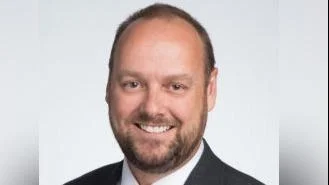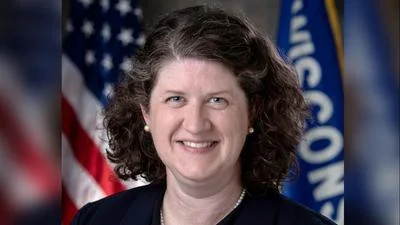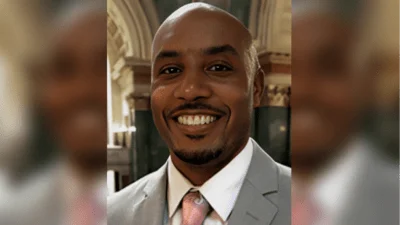How FVTC is Helping Solve the Daycare Crisis | Fox Valley Technical College
How FVTC is Helping Solve the Daycare Crisis | Fox Valley Technical College
Daycare centers are in crisis and the need for skilled workers to teach our preschool population is greater than ever before. Fox Valley Technical College is answering the call by not only offering a wide range of certificate, technical diploma and associate degree options to get students trained in this career path, but the college also recently launched an Early Childhood Educator Apprentice program.
Kathy Meetz, department chair of Early Childhood Education, was recently interviewed by Hayley Tenpas during WHBY’S Focus on Careers segment. Kathy explains what is going on in the industry that is contributing to the crisis, and how FVTC is trying to be part of the solution.
Listen to Kathy and Hayley’s conversation on WHBY's Focus on Careers or you can read the transcript of the conversation below.
WHBY Focus on Careers
Tenpas: Welcome back to Focus Fox Valley on WHBY. Time now for our Focus on Careers with Fox Valley Technical College. We love to highlight different careers of promise. And today we're talking about a career that has made, I think, some national attention recently. The early childhood and child care opportunities that are out there. I have a hunch there are plenty. And we have Kathie meets joining us today, department chair for our early childhood education programs at Fox Valley Technical College. Kathie, hello to you.
Meetz: Hello.
Tenpas: Thank you. Thanks for being.
Meetz: Well, thank you for inviting me.
Tenpas: Absolutely. And, I know in my social circles of parents and friends with kiddos, this is a topic we've had come up multiple times, the struggle to find childcare centers, maybe losing days of care and just the need right now for teachers and care workers and I'm sure that's something that you are no stranger to as well. What can you tell us from what you're seeing and hearing in this industry?
Meetz: You know, pulls at your heartstrings? Yes, it does. You can watch it play out on social media every day, individuals looking for child care. And, you know, that is what’s your most prized possession, your children. Right. And so you need to find a placement that is a right fit for your family. And it's the biggest decision in your life. Some giving somebody else the privilege of caring for their children is a pretty serious decision. And we're in crisis. We have been in crisis for a long time, but we are really in crisis. We have centers that are closing their doors for a day, or a week because there's such a shortage. We have family childcare providers closing their doors because they just can't make it. The staff shortage is all over in every industry. Right. But in early childhood, if you have a shortage there-- because it's the infrastructure of everything that we do-- it impacts everybody. Whether you have a child or not, you're impacted by it because your family, your friends, the person working next to you, if they can't find quality, affordable child care, they're impacted because you're struggling, you're stressed, and it's real. It's real.
Tenpas: It's real. And it's a tricky thing, I would imagine, too, because child care is very expensive in some circumstances for families. You look at that affordability factor, but then at the same time, yes, we should be paying these childcare workers. They are caring for the most precious things in our lives. Right. It's a catch-22 in some sense.
Meetz: And we assume that these child care workers-- because the cost of care is so high-- we assume that it's going into the owner's pocket or the child care workers’ pocket. And that is so far from the truth. About 80% of the budget is allocated to the benefits and wages of the workers. That seems like a lot, right? But they are making the lowest in our communities. So on average, they're making $12 an hour. People who groom pets for a living make more than people who care for our children. There is something wrong with that.
Tenpas: That's a tough pill to swallow.
Meetz: It really is.
Tenpas: So not to bring so much doom and gloom to this conversation, because I'm hoping that there is some type of light out there. And we know that Box Valley Tech has had this program. You were just telling me before the break, for 50 years…
Meetz: For 50 years, the child care center, our parent-child center on campus has been in business caring for students, children, and staffs children. Hayley, you said that you were one of those kiddos back in the day.
Meetz: And so what we do in our program is we educate those childcare workers to go out and work in programs like the Parent-Child Center or throughout our community. And you're right, right now, it's not all doom and gloom, although there's a lot of doom and gloom. We have a lot of national attention. We have a lot of community attention to this subject. And we have never had as many legislators and businesses and community-based organizations talking about this problem. Never before have I seen this. And so it's going to take a community to solve our problem. But you're right, we have things that are available to help. If there is anybody who has any kind of interest in working with children, we have a pathway to fit them.
Tenpas: Yes. Let's talk about some of the different options that are out there. Fill us in.
Meetz: Sure. You know, we start with our high school students and we have lots of dual credit opportunities. And if you don't know what dual credit is, it means that a student in high school is taking a class for high school credit and actual college credit. It's a win-win. It is. We work with 15 high schools right now and they're teaching 38 of our different classes in the high schools. So what that means is that once a student passes those classes, they turn 18, and they're ready to be employed in one of our child care centers. We don't want them to stop there. We want them to then come to Fox Valley Tech and continue to take classes and earn certificates and degrees. So the next level for them would be a certificate. And we have five different certificates, so ranging from six credits-- so two classes, that's a teacher aide certificate to a child care administrator certificate -- which is 18 credits. So we have different certificates that are available. We also have two technical diplomas. So those classes that you're taking a certificate in will move right up into that next pathway and to our technical diploma. We have the assistant teacher technical diploma, and we have an early childhood teacher technical diploma, and then, of course, our associate degree, which is a 60-credit degree. So you know, I want people to hear that if you're interested, we will create a pathway that fits for you, whether that be an online pathway, whether that be you come to campus and you attend classes in a classroom. We have a fit for you. You can take one class, you can take five classes. We'll make it work.
Tenpas: They'll make it work. We're talking with Kathy Meetz here today, the department chair for the early childhood education program at Fox Valley Tech. We'll take a short little break. We'll talk more about it when we come back after this. Welcome back to Focus Fox Valley and it's our Focus on Careers today with Fox Valley Technical College. Kathy Meetz, joining us, as department chair for the Early Childhood Education program. You know, Kathy, it takes a really special person to care for kiddos. And I imagine that the days are long, but the years are short, as they say. Right. And you can't believe how fast that time flies by with those kiddos. Let's talk about the need, though, in the area and where your graduates are kind of ending up. I'm curious, is it childcare facilities? Are they in-home programs? What are you seeing graduates going out and doing upon graduation or completion of these programs?
Meetz: They usually come in with a goal in mind, and that goal can be they want to start their own business, whether that be a group, child care center, or a family child care program in their home, or they want to take their credits and they want to transfer them to university and earn their bachelor's degree. Maybe they want to be a four. A teacher. Maybe they want to work in group child care. There’re so many opportunities available once you start accumulating those credits. And what we do in our program is we give them a lot of different opportunities and a lot of different exposures to different age groups, to different settings, and we help them decide what's a good fit for them. They come in with an idea they usually leave with. I loved that infant toddler placement. I want to work with infants. And each group has its rewards in each group has its challenges.
Tenpas: I love that. A special shout out to those three K in 4k teachers right now. That's kind of been my current season the last couple of years, and the passion and the love that I see my kiddo have for those instructors. They are magicians in so many circumstances. They are wonderful, wonderful humans.
Meetz: Right? And they look at it as a privilege to work with other people's greatest possessions, right? It's a privilege to do that.
Tenpas: So you've been with the college for how long? For how long have you been part of this program, Kathy?
Meetz: Oh, you know, that gets that age, doesn't it?
Tenpas: A few years, two years.
Meetz: I've been at the college for 18 years. Wow. Before that, I worked in industry, particularly for the Appleton Area School District and for the Appleton YMCA.
Tenpas: So what have you seen over the years that has kept you in this industry? We hear a lot about people leaving, but you've stayed. So many others have stayed. What is special about it and what have you seen maybe change over the past couple of decades?
Meetz: You know, there's most people have a calling, right? And once you find that fit for you, you're just passionate about it. And you want to do everything you can to make a difference. I don't do direct care with children, but I teach the individuals who will do that direct care. And that's the way that I can impact our community and our families and our children. And I've never it can be hard, it can be exhausting, but I've never strayed from that. And I think that is the story of a lot of people. You can look at any child care center and you can find those individuals who have stayed through the hardships. But also, you know, it is a reward. At the end of the day, you have the opportunity to impact a child's development. Right. And you also have an opportunity to support a family and to make a difference in a community that's powerful. Right. What other industry are you making such a significant impact on? That's a lot That's just a lot of trends. I think that right now there's so much attention to child care that's exciting. That is for financial support to keep our centers up and running to just people talking about it and people feeling that support like, you know like you just recognized it's a hard job. And for people to recognize that is important to our industry. I think one of the challenges that individuals working in the field face are the children themselves. They've changed. They're influenced a lot by social media. There's a lack of social and emotional development, so the face of those innocent children in some situations have changed and the struggle is real. And we have to figure out how to support them.
Tenpas: Well, I hope we're maybe reaching some folks out there who are curious about this career field. And I can tell you, I know firsthand those kids think the world of those instructors as well. Parents are probably in admiration of the kids. They think the world of those instructors. So if people want more information about this program, and spring enrollment, I know right around the corner happening now, call us now, right?
Meetz: Yes.
Tenpas: What do people need to know if they want to consider being part of early childhood programs?
Meetz: I was thinking about that and came up with four different points. And so we're teaching, we're not babysitting. Significant difference. Right? We're going to teach about understanding children. And once you understand children, that's where your patience comes from. Just so you understand.
Tenpas: You need a parents’ course.
Meetz: Any time. Yeah. I tell some of my family members. Yeah, you should attend my classes. And then, you know, children are cute, right? But it goes beyond children being cute. So we teach about the value of play and the intentionality behind the play. And then, you know, as I said, this job is rewarding. There's no other job that you're going to go home as exhausted but as fulfilled as you are in this job.
Tenpas: Kathy Meetz, thank you for being here. We've learned a lot today. I appreciate your time and hope to connect again in the future.
Original source can be found here.






 Alerts Sign-up
Alerts Sign-up